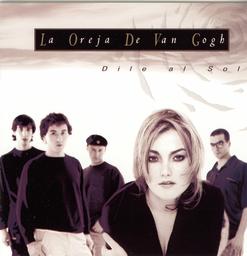This article needs additional citations for verification .(February 2022) |
| Dile al sol | ||||
|---|---|---|---|---|
 | ||||
| Studio album by | ||||
| Released | 18 May 1998 | |||
| Recorded | ASK Producciones Madrid, Spain Middle Ear Studios New York, United States 1997 – 1998 | |||
| Genre | Rock, Pop rock | |||
| Length | 44:57 | |||
| Language | Spanish | |||
| Label | Sony Music Entertainment | |||
| Producer | Alejo Stivel | |||
| La Oreja de Van Gogh chronology | ||||
| ||||
| Singles from Dile al sol | ||||
| ||||
Dile al sol is the debut album from Spanish pop rock band La Oreja de Van Gogh released by Sony Music Entertainment in May 1998. The album was very successful in Spain, selling more than 800,000 copies there. [1]
Contents
- Track listing
- Personnel
- Performing
- Technical
- Design
- Charts
- Sales and certifications
- See also
- References
This first album was recorded in Madrid between the months of July and August 1997. The title track from this album was the one with which people began to know them, but it was not until the release of "Cuéntame al oído" that the band became a success.